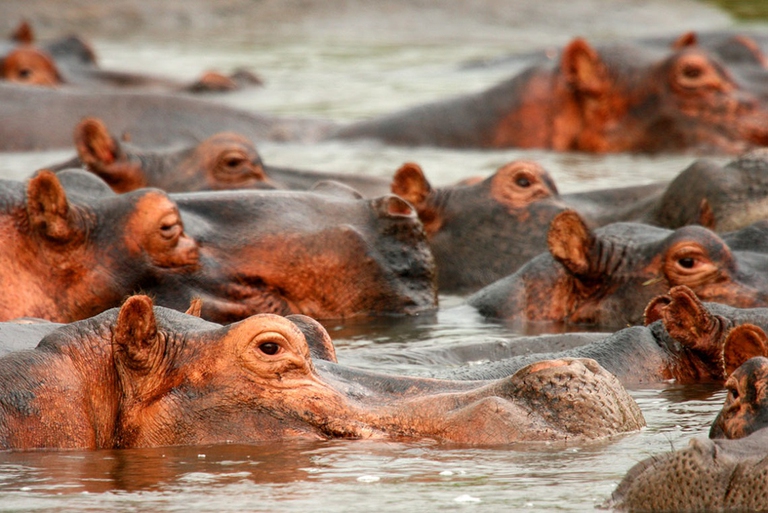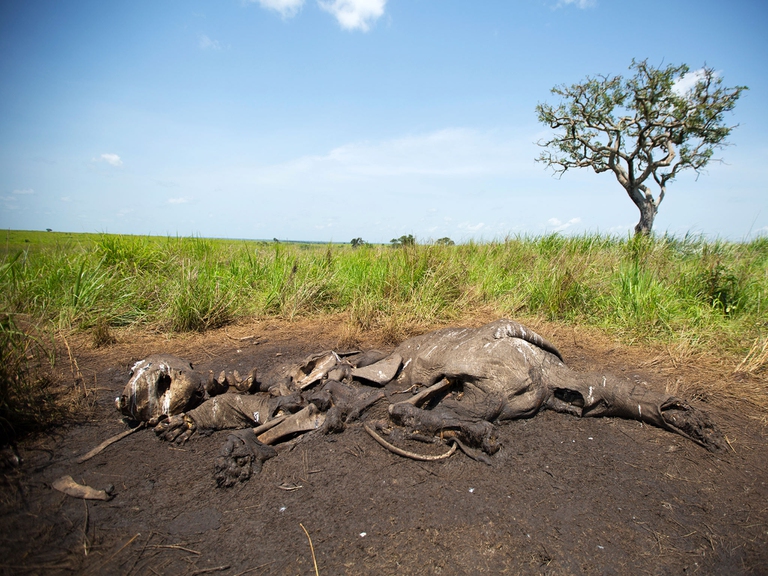
South African court dismisses a major lawsuit by 140,000 Zambian women and children against Anglo American for Kabwe lead poisoning. A setback for affected communities enduring the lasting impact of lead contamination.
Garamba National Park, Democratic Republic of the Congo, is one of the most important and ancient natural parks in Equatorial Africa. It is home to a huge variety of wildlife including elephants, lions, giraffes, hippos and white rhinos. More precisely, it is home to what’s left of these animals’ ancient populations, after decades of relentless poaching.
Garamba National Park, Democratic Republic of the Congo, is one of the most important and ancient natural parks in Equatorial Africa. It is home to a huge variety of wildlife including elephants, lions, giraffes, hippos and white rhinos. More precisely, it is home to what’s left of these animals’ ancient populations, after decades of relentless poaching.
The park, founded in 1938 and World Heritage Site since 1980, continues being theatre of bloody conflicts between poachers and rangers trying to protect wildlife. On 24 April, three rangers have been killed and two injured during gunfire with poachers. All victims were part of African Parks, Dutch-Southern African non-governmental organisation that manages numerous natural parks in Africa.
According to the organisation, rangers Dimba Richard, Anigobe Bagare, and Matikuli Tsago were killed, while park director Erik Mararv and ranger Kenisa Adrobiago were injured and are now in a stable condition. Further details haven’t been released yet.
Garamba National Park extends for 13,000 square kilometres and is home to vast savannahs, meadows and forests. It was once home to elephants and other wild animals, but today wildlife and conservationists are constantly threatened. Last year alone, 5 park rangers and three members of the Congolese armed forces were killed by poachers.
Ivory trade is strictly linked to terrorism. Over the past decade, militants of the infamous terroristic group Lord’s Resistance Army have been operating in the park, as well as all over Central Africa, threatening rangers.
“We are devastated by this latest loss,” said CEO of African Parks Peter Fearnhead. “Rangers put their lives on the line each and every day, and are under real siege in Garamba protecting elephants from heavily incentivised and militarized poaching gangs”. The families of the victims will be indemnified, for an amount six times their salary plus donations.
Despite China and the United States are committed to gradually eliminating ivory imports at an international level, poaching levels remain high, killing over 35,000 African elephants every year and threatening their survival in Africa.
Siamo anche su WhatsApp. Segui il canale ufficiale LifeGate per restare aggiornata, aggiornato sulle ultime notizie e sulle nostre attività.
![]()
Quest'opera è distribuita con Licenza Creative Commons Attribuzione - Non commerciale - Non opere derivate 4.0 Internazionale.
South African court dismisses a major lawsuit by 140,000 Zambian women and children against Anglo American for Kabwe lead poisoning. A setback for affected communities enduring the lasting impact of lead contamination.
Controversial African land deals by Blue Carbon face skepticism regarding their environmental impact and doubts about the company’s track record, raising concerns about potential divergence from authentic environmental initiatives.
Majuli, the world’s largest river island in Assam State of India is quickly disappearing into the Brahmaputra river due to soil erosion.
Food imported into the EU aren’t subject to the same production standards as European food. The introduction of mirror clauses would ensure reciprocity while also encouraging the agroecological transition.
Sikkim is a hilly State in north-east India. Surrounded by villages that attracts outsiders thanks to its soothing calmness and natural beauty.
Sikkim, one of the smallest states in India has made it mandatory for new mothers to plant saplings and protect them like their children to save environment
Chilekwa Mumba is a Zambian is an environmental activist and community organizer. He is known for having organized a successful lawsuit against UK-based mining companies.
What led to the Fukushima water release, and what are the impacts of one of the most controversial decisions of the post-nuclear disaster clean-up effort?
Nzambi Matee is a Kenyan engineer who produces sustainable low-cost construction materials made of recycled plastic waste with the aim of addressing plastic pollution and affordable housing.









